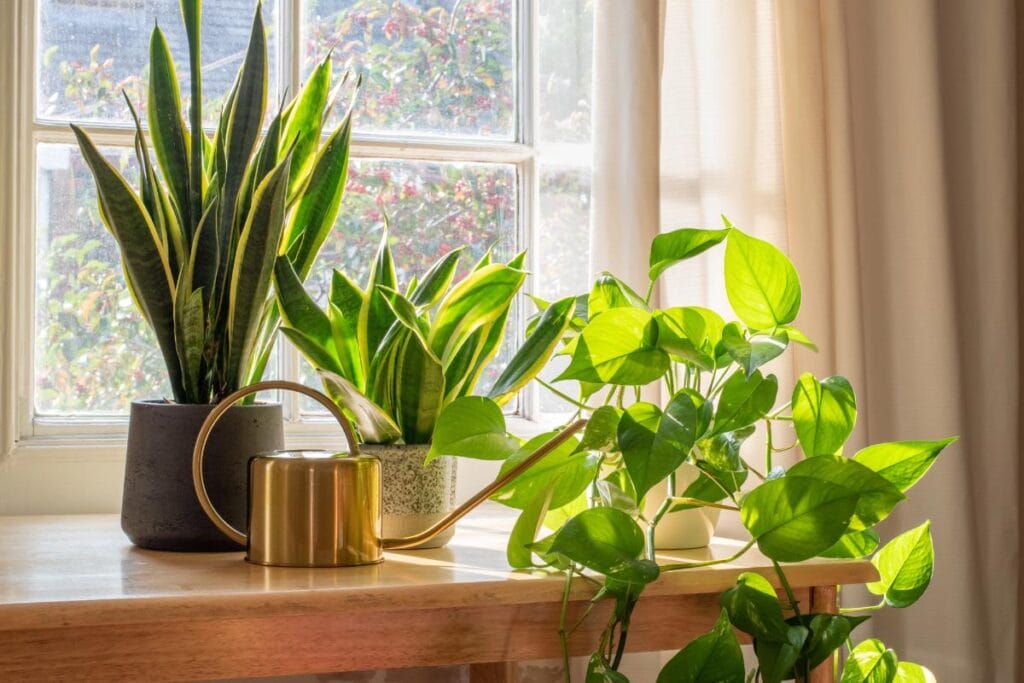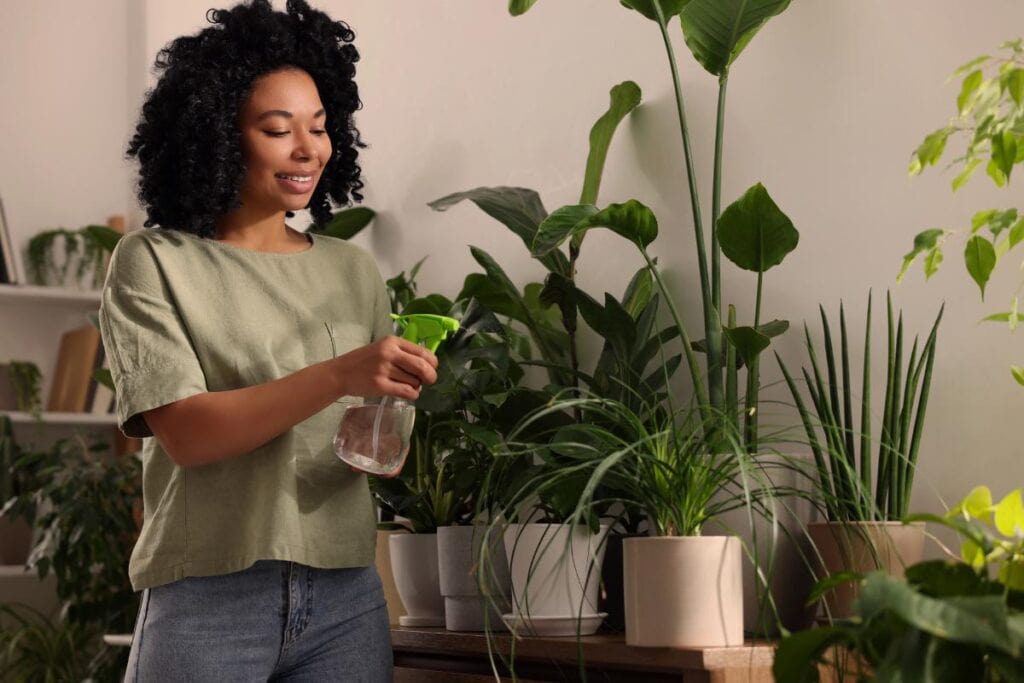
When you are moving to a rental home, you will need to adhere to the limits set by your landlord. In other words, you can’t renovate the rental home much, and you may not even be able to hang things on the walls. However, one upgrade that landlords often welcome is the addition of houseplants. The right greenery can help you transform a plain-looking rental home into a fresh and calm one.
Keep in mind that not every plant will fit the space within your rental home. As a tenant, you need to go for something that thrives with minimal fuss. Read on as we will share details on how to choose the right houseplants while renting.
Benefits of Adding Houseplants to a Rental
Living in a rental doesn’t mean you need to settle for a dull or lifeless space. Adding a few houseplants offers several benefits that extend well beyond decoration. Here are a few of the most prominent benefits of adding houseplants.
- Cleaner air
Many houseplants absorb toxins from the air while releasing fresh oxygen into it. For example, houseplants like snake plants and peace lilies can help reduce indoor pollutants. This can help you reduce your reliance on air purifiers.
- Instant style upgrade
House plants are capable of interrupting the monotony of your rental property. For example, imagine having a small cactus on the windowsill. It will draw the eye in immediately. You will love spending your time in such a home.
- Mood and stress relief
Recent studies have shown that exposure to plants with lower levels of stress and anxiety. You will love the mood-boosting effect that houseplants can have when you come home from a busy day at work. Even the simple act of watering plants is a mindful break from the rush of everyday life. This can be extremely valuable if your rental is in a noisy city environment.
Ask Questions About Watering and Humidity Needs

There are a few things you need to be mindful of before you get houseplants. Watering and humidity needs hold a prominent place among them. Here are a few questions to ask.
How much water does the plant need?
Not all plants sip water the same way. For example, pothos and succulents can survive if you forget once or twice. On the other hand, ferns react quickly to dry soil. If your schedule requires you to be away for a few days, you’ll want plants that don’t require constant attention.
What’s the humidity level of the rental unit?
Humidity matters more than people think. A snake plant tolerates dry air found in many apartments with central AC. On the other hand, a Boston fern craves moisture and browns once the air gets too dry. This is why you need to see if your rental unit can trap humidity.
If your rental tends to trap humidity, high-moisture plants may thrive, but they could also increase the risk of mould around walls and ceilings. This makes it important to choose greenery that matches your apartment’s climate.
Will mold be an issue?
Landlords consider mold a serious issue. Hence, you should be mindful of mold prevention when getting houseplants. This is where you should refrain from overwatering. Make sure to refrain from constant misting as well, as it can increase indoor humidity. Opening windows occasionally can help you manage humidity problems.
Asking these questions helps prevent plants from becoming a source of stress. Instead, the right choice blends into your rental without creating maintenance battles. Consult with your rental manager in Northern Virginia if you have concerns with lease compliance before buying houseplants.
Consider Maintenance and Overall Lifestyle
The houseplants you choose for your home should also match your lifestyle. Here are some tips to help you pick such houseplants.
- Busy tenants
If most of your day is spent at work or the gym, low-maintenance plants are your best bet. This is why you should consider options like snake plants, ZZ plants, or aloe vera. You can simply ignore them for a few days. They even prefer drying out between waterings.
- Homebodies
If you spend more time at home, consider finding some interactive houseplants. This is where you need to look at herbs like basil, rosemary, or mint, as they can bring life to your kitchen. However, these houseplants require more regular care. They reward you with fresh additions to meals. Consider popular houseplants that can help make your rental feel like home.
- Frequent movers
If your rental contract is short and you frequently relocate, consider choosing plants that are well-suited for travel. Hanging plants, such as pothos, can be clipped and transported easily. Avoid massive pots or trees that take up too much space, as they are difficult to move without causing damage.
- Pet owners
For tenants with cats or dogs, safety is also a concern. Many common houseplants, such as lilies, philodendrons, and aloe, can be toxic if eaten. Instead, consider non-toxic options like spider plants, parlor palms, or calatheas.
When selecting plants, consider lighting. Most rentals will have windows facing only one direction, so it pays to learn whether your unit provides bright southern light, indirect northern light, or shaded exposure. Matching the light levels with plant requirements ensures success without constant stress.
Finally, consider size. Large floor plants may make a studio feel cramped. Smaller succulents or tabletop greenery might be the smarter option. The goal is to enhance your space, not overwhelm it.
Being a tenant doesn’t limit your ability to create a homey and welcoming environment. Houseplants are one of the simplest ways to transform a plain rental into a space full of life and personality. The key is choosing wisely.
Start by reminding yourself of the main benefits of having plants, such as purifying the air, boosting your mood, and adding style with minimal cost. Consider asking yourself practical and right questions to prevent headaches later. How much water does each plant need? Will the humidity in your unit affect success? Could mold become a problem?
Finally, accommodate your lifestyle. If you’re too busy to water daily, lean on hardy choices such as snake plants. If you want interaction and flavor, try herbs. If you have pets, always check for toxicity risks. Not every trendy plant fits every home, but the right one will thrive in your unique space.
